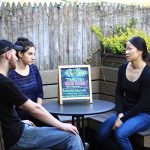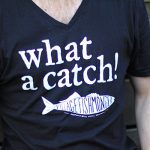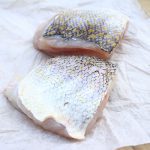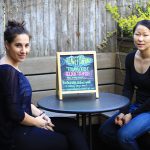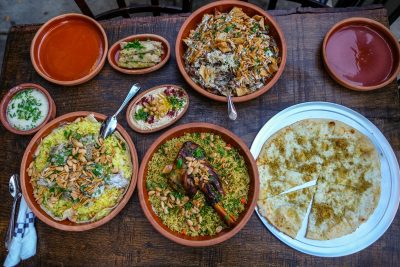Village Fishmonger

Your fish is “responsibly caught.” What are some of the “irresponsible” things other fishers do?
At Village Fishmonger, we believe that responsible seafood can mean a number of things, which we evaluate in our three-pronged approach including gear choices, habitat issues, transparency, or ecological trends. But beyond these factors, one of the most important things we look for is a fishermen’s relation with his or her community.
Our partners, from Cape May to Montauk, are equal parts educators and stewards of their industry and environment. They are keystone members of their coastal communities—in many cases, they are third, fourth, and fifth-generation fishermen, and work with the mindset that they’d like to pass along that tradition to their children, neighbors, and friends, so beyond just fishing in order to make a living, they approach fishing with the mindset that what they do everyday needs to add to and not detract from this way of life so others can continue doing it into the future.
Is there a local/responsible/transparent fish movement in the city right now? How hard is it to get “good” fish in Brooklyn? How hard had it been?
In general, people are starting to give more thought to where their food comes from and are asking for more transparency and a closer connection to the producers of their food. Not only are there are now over 100 CSAs (Community Supported Agriculture) in NYC, every day it seems like there’s a new online platforms launching that connect users to producers of their food products. So it’s not a huge stretch to imagine that the same people who already belong to a CSA and/or want to get to know their farmer, butcher, baker and jam maker will want to have the same connection and transparency to their fishermen and fishmonger.
This is not to say that there aren’t places to get good seafood already in the city, however, the increase in awareness and a desire to eat local and sustainable overall are galvanizing people to try out a different system (vs. a traditional retail model) to gain access to local, responsibly harvested seafood. A lot of our members tell us that in the past they had been hesitant to purchase seafood on a regular basis because they weren’t sure of provenance, quality of the product, but that through the CSF they feel more confident about consuming seafood because they know that we own the entire process once we receive the fish off the docks.
How long have you been up and running? Why’d you choose to set up your offices in Brooklyn?
Village Fishmonger’s CSF officially launched operations in September 2012, but we just moved into the old Pfizer Building on Broadway Triangle in January 2013. It’s been great to be in this building—it currently houses over 40 food-related businesses and every day a new one pops up—it’s a real community and I’m always surprised and delighted by how everyone helps each other out and the kinds of collaborations that can pop up between neighbors.
You might also like 










